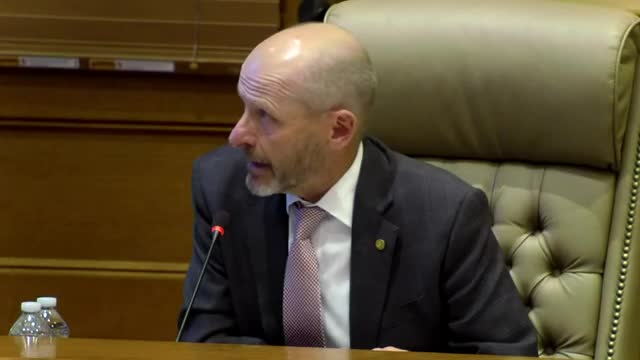Peoria council defers decision on proposed freeze of sewer, garbage and stormwater fee increases
Get AI-powered insights, summaries, and transcripts
Subscribe
Summary
After hours of budget discussion and new grant announcements, Peoria City Council voted unanimously to defer a motion to freeze sewer, garbage and stormwater fee increases so members can review a package of proposed budget amendments and grant-funded projects.
Peoria City Council on Tuesday deferred a motion that would have frozen proposed increases to the city’s sewer, garbage and stormwater fees for the 2026–2027 biennial budget, asking staff to return next week with a written package of recommended budget motions and report backs.
City Manager Urich and Finance Director Cratty walked council through a list of items staff says could be added or revised in the budget to balance revenues and expenditures. Urich told the council that several large grant opportunities and timing changes to capital projects were newly available and could affect the city’s cash and obligations. “90% of that is gonna come from the federal government,” Urich said when describing the expected federal match for the next phase of passenger-rail planning.
The manager described a set of potential adjustments that staff said would allow the city to absorb several revenue decisions while keeping the budget balanced. Those items include: advancing Peoria’s participation in a Federal Railroad Administration corridor planning grant (staff estimated Step 2 at $6.4 million, with a 90% federal share and a local/partner match of roughly $640,000); $6.9 million in state funding awarded for the Wisconsin Avenue reconstruction (which staff said would free up state motor fuel tax funds in later years); the city’s planned acquisition of Expo Gardens at auction for $1,201,100 and the remainder of a $2 million land-bank grant (about $798,900 still to budget); and the budget and matching costs related to an awarded FEMA SAFER grant to hire 11 firefighters.
On the SAFER award, Chief Sahlberger told council the program would pay for 11 positions over the federal grant period but requires local matches and carries long-term staffing implications. Sahlberger said the department has generated recurring revenue — about $200,000 annually from its training academy since 2023 and more than $625,000 from fire-recovery insurance collections — and that the SAFER grant would reduce overtime costs tied to Rescue 1. Manager Urich and Director Cratty warned that the SAFER grant carries program conditions (hiring floors and grant terms) and local matching costs: “over the 3 year period, it’s $3,000,000 of federal funds, and then there would be just under $1,900,000 of local matching funds,” Urich said.
Council discussion focused on tradeoffs between near-term relief for ratepayers and the longer-term costs of deferring capital projects or increasing operating commitments. Council member Cyr, who moved the fee-freeze motion, framed the proposal as a taxpayer relief measure: “I’d like to move that the sewer fee, garbage fee, and storm fee as presented by Director Cratty, not increase in for the budget 2026 and 2027.” Other members urged caution and asked staff to provide a full list of proposed motions and the net budget effect before voting. Council member Kelly and others suggested a one-year freeze might be easier to evaluate than a two-year freeze, while Council member Riggenbach said he supported the concept but wanted the manager’s plan in writing before he voted.
After a procedural motion to defer the fee-freeze vote, the council cast ballots and the deferral passed unanimously. The manager said staff will prepare a set of individual budget motions and written report backs for next week’s meeting so the council can consider each item separately.
Votes at a glance: the council voted unanimously to defer the fee-freeze motion to next week and unanimously approved the motion to close the public hearing on the biennial budget earlier in the meeting.
Staff and next steps: Urich and Cratty told council they will bring back a packet of budget motions and requested report backs (including capital budgets by funding source, tax/fee histories and tax-rate data) and will itemize the specific dollar impact of each proposed change so council members can vote on individual amendments rather than an omnibus package.
Context: The conversation followed public comment earlier in the meeting and about two hours of staff responses to council report‑back questions on pavement preservation, sidewalks, existing bond structures and asset revenue sources. Several council members also emphasized the city’s pension costs and long-term liabilities that could be affected by new hires funded initially with federal grants.
Ending: Council scheduled the budget follow-up for next week as a regular/continuing budget meeting; managers and staff will return with detailed motions and the requested financial exhibits before council takes a final vote on any of the proposed changes.
